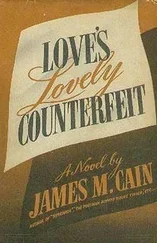1 ...8 9 10 12 13 14 ...20 “I actually haven’t figured it out yet, but it’ll come to me.”
Thropp laughed with still greater hysterics.
“Is that all?” Peter asked.
“Not quite. Have you seen this?” Thropp held the walnuts, one between the thumb and forefinger of each hand, displaying them to Peter like a magician. He put the nuts on the desk, rubbed his hands, then picked one up, interlaced his fingers, and worked the nut so that it was between the heels of both his palms. He squeezed, cracking the shell, and then burst out laughing again.
“How do you like that?” Thropp greedily picked some meat out of the walnut and ate it. Slivers of shell stuck to his chin.
Peter turned and began to leave.
“Hold on! Got to do the other one!” Thropp called after him. The sound of his laughter followed Peter far down the corridor.
It was a long walk back to Peter’s office. His mind raged with emotion and competing impulses. He would go above Thropp. But to whom? He would annihilate the bastard. But how? He would quit. But he had an employment contract; and besides, Beeche was the only place he wanted to work. And in two weeks, he was getting married.
Peter reached his office. Various numbers blinked on his big screen as indexes and rates changed around the world. On his computer monitor, he saw that he had a dozen e-mails. He pushed a button and they all came up, tiled one under the other. Then he noticed the large black diamond on the display of his phone: he had messages. He looked at the clock and saw that it was nearing ten o’clock. At exactly two minutes to ten, it was crucial that he be on the line to Frankfurt.
The phone rang; he could tell by the ID that it was his fiancée, Charlotte Montague.
He picked up the phone and said, “Hi there.”
“Hi, Peter!” said Charlotte. “How are you?”
“Oh … uh … I’m okay.” Peter didn’t feel like talking about his presentation, and he could already tell that Charlotte must be preoccupied with a wedding crisis, so this wasn’t the moment anyway. “How are you doing?”
“Well,” said Charlotte, “I’m fine. But the reason I called was that Mother is being completely unreasonable about the cheese. The French people just won’t understand about serving it before dinner.”
Oh. The cheese. This was serious. Peter didn’t mind, really. He knew what was expected of him in his role as bridegroom: listen patiently, show your interest, respond with sympathy, say “yes.” With the wedding only two weeks away, Charlotte’s nerves were frayed, naturally, as were her mother’s. Charlotte kept talking, and Peter had to admit that his mind had begun to wander, as he remembered the meeting and his encounter with Thropp, as he watched the lines skitter on the screen before him, and as he, inevitably, imagined what it would be like to be marrying the woman he really wished he were marrying.
Charlotte talked on. “Scalloping … Bartók.” Bartók? Then Peter could tell from her tone that she was bringing her own remarks to a close and that he would have to comment. Experience had taught him that in these situations, it was best to leave a few brain cells behind to listen, even as the rest of his mind withdrew.
These scouts gave their report, and Peter said, “God, Charlotte, of course you’re completely right about the cheese. I mean, I wouldn’t know, but I’d trust you on that more than your mother! Anyway … oh, I think that scalloping, you know, might be kind of fussy? And I really like the plan for the music, so I agree with you, we should stick with what we have. I mean, I’m sure it’s a beautiful piece—”
“Oh, good,” said Charlotte, “I knew that you’d feel that way.”
By carefully calibrating his responses, Peter hoped to show that he had given each issue due consideration and was not simply agreeing with Charlotte in order to humor her. The Bartók had raised a genuine concern: Charlotte was impressionable, and if one of her interesting musical friends suggested Bartók for the church, as seemed to have happened, there was a chance that it would be Bartók.
“Well,” Charlotte was saying now, “I’d better run. I’m sorry I won’t be able to join you tonight.”
“Me too.”
“Duty calls.”
“I know! Don’t worry about it. We all understand.”
“I’ll be sorry to miss Jonathan’s reading.” Peter’s best friend, Jonathan Speedwell, was a writer, and he was giving a reading that night from his new book of stories. Peter and Charlotte had planned to go to it and have dinner with Jonathan and his wife afterward. But Charlotte had to go to an event for her work. Charlotte liked Jonathan a lot and flirted with him in a girlish, free-spirited manner with which she did nothing else. “Did you see the review today in the paper?”
As if Peter had time to read book reviews. “No,” he said. “Was there one?”
“Oh, yes! I’ve got it right here. Let me read it to you—”
“Charlotte—” Charlotte, I’ve got to make a call, Peter was about to say. The flashing numbers. Frankfurt. But he was too late.
“Let’s see,” Charlotte said. “Oh, here we are. ‘With Intaglio, his new collection of short stories, Jonathan Speedwell once again demonstrates triumphantly that he is among our most potent younger voices writing today. In luminous silverpoint prose, he deftly renders the struggle of men and women desperate to maintain their purchase on life …’”
Deftly, Peter thought. With Jonathan it was always “deftly.”
“‘… But if there is one quality that truly marks Mr. Speedwell as a writer of distinction,’” Charlotte continued, “‘it is his deep compassion for his characters.’”
Christ. Again, the compassion-for-his-characters thing. Peter could not understand why it was such a big deal for a writer to have compassion for his characters, as opposed to, say, real people.
“‘In perhaps his most finely wrought tale, “The Copse …”’ Well, I won’t read you the whole thing. But isn’t it terrific?”
“Yes.”
“He must be very pleased. Will you congratulate him for me?”
“Of course.” Charlotte was an earnest person whose demeanor generally was almost grave. Peter imagined what she would be like as she congratulated Jonathan—winsome, crinkling her eyes and grinning.
“He’s still pleased about being best man, isn’t he?”
“Sure. I told you, the only problem is, he wants to give me away.”
“Oh.” Charlotte’s mind snagged momentarily on the word “problem.” Then she got it. “Oh! Yes. You said that. How funny.”
“Charlotte—”
“Uh-oh, that’s my other line. Sorry, I’d better take that. Thanks for your help. Have fun tonight. Call me.”
“Sure, right, okay. Bye.”
Throughout this conversation, Peter’s other phone lines had quietly burbled again and again. The black diamond seemed to become denser and denser and heavier and heavier with the weight of added messages. Staring at his screens, he saw more e-mails arrive and numbers blip and charts jitter. As usual, the clock in the upper right-hand corner barely seemed to change when he was staring at it, but then when he looked away and checked it again, he was shocked to see how far it had advanced. Still, Peter didn’t begrudge Charlotte this expenditure of his time at a pressing moment of his day. Those were the phone calls that brides made two weeks before the wedding, and they were ones a decent bridegroom would tolerate. It was part of life. And, he supposed, it was part of life to be screwed over in your job once in a while. It was part of life to see your best friend have undeserved success. It was part of life, also, not to get the girl.
Just in time, he reached Frankfurt.
Why was Peter marrying Charlotte? Why was Charlotte marrying Peter? Charlotte worked in the New York office of L’Alliance Générale et Spécifique des Pays Francophones. The AGSPF fostered economic and cultural exchange among the French-speaking peoples of the world and tried to promote the French language and Francophone civilization in all places sadly suffering from their lack. Dogged and intelligent, Charlotte had mastered the politics of Chad (Djamous, the finance minister, was on the rise, though not supported by the Quay d’Orsay) and the diplomacy of Laos. She was, it seemed, always writing a report on intra-Francophone trade. There were lots of tables. In addition to this intellectual work, Charlotte also participated in the AGSPF’s busy social life: no minor Algerian poet could pass through New York without a reception. That’s what was happening tonight. Charlotte had to attend a dinner for a Belgian economist, who had appeared in town unexpectedly.
Читать дальше












